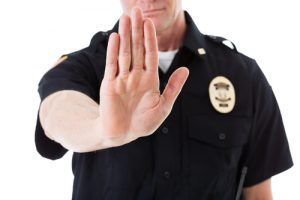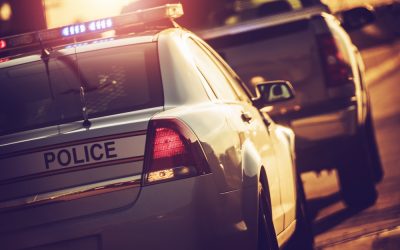
Can the police search your car if you’re on probation in California? In most cases, police officers have the legal right to go through your vehicle without a search warrant while you’re on probation. Most drivers have to agree to these searches as a condition of probation.
However, law enforcement officers sometimes take this ability too far and perform unreasonable searches. You can learn more about your rights while on probation with a Los Angeles DUI lawyer. You can also call or fill out our online contact form to get answers to your questions.
Why Can the Police Search Your Car While You’re on Probation?
California’s probation laws remove some Fourth Amendment protections from individuals on probation, meaning you may experience warrantless searches. Basically, by agreeing to probation, you submit to searches of your:
- Vehicle
- Property
- Person
- Place of residence
California makes this agreement one of the conditions of probation for many people. Law enforcement officers may perform these searches if you’re on:
Formal Probation
Individuals convicted of a felony in California may receive formal probation. The court assigns these individuals a probation officer with whom they must meet regularly as part of their release.
In addition, individuals on felony probation must sign a waiver acknowledging the police’s right to conduct warrantless searches of their person, home, and car.
While you don’t completely erase your Fourth Amendment protection under this agreement, the police have wide latitude to conduct searches on your home and car. A criminal defense attorney can provide more information about probation search regulations.
Informal Probation
Informal probation, also known as summary probation, is given to individuals in California for misdemeanor criminal offenses. Rather than working closely with a parole officer, individuals on summary probation must check in with the court regularly.
With informal probation, you do not have to submit to warrantless searches in the same way as individuals with formal probation. However, you might still be subject to warrantless searches of your car on informal probation.
People on informal probation have the same expectations of privacy and protection as individuals without any probation status. However, there are circumstances in which an officer may search your car without a warrant.
The Police Can Always Search Your Car if You Consent
Officers may search your car if you give them permission to do so. An officer may not phrase the request to search your car clearly but will have the freedom to investigate your vehicle once you affirm that they may.
This search may include the passenger area, your trunk, and any containers in the vehicle. The police can search your car without a warrant in this situation.
Denying an officer the chance to search your car is not grounds for an arrest. If the police ask for permission to search your vehicle, even if the officer suggests that a vehicle search may clear you of suspicion, you can politely decline the request.
The Police Can Look in Your Vehicle with Probable Cause
An officer may conduct a warrantless search of your car if they have probable cause to believe you are carrying evidence or contraband within the car. Under the Carroll Doctrine, an officer may search your vehicle if:
- They have articulable facts (i.e., probable cause) that suggest that there is evidence or contraband within your car
- Your car can move, which could impact the ability of the officer to obtain a warrant before someone removes evidence or contraband
Suppose an eyewitness tells the police that they witnessed you drinking from an open container. In that case, officers may use that testimony to search your vehicle for evidence because they have reasonable suspicion of criminal activity.
The Police Can Search Your Vehicle After an Arrest
If you are pulled over and arrested, the officer likely has the right to conduct a search of your car. In this scenario, the officer may search the vehicle for evidence relating to the crime. However, the evidence collected does not need to be for that crime.
If the police arrest you for a DUI and the officer finds both an open container and an unlicensed firearm, the officer may collect both and arrest you for criminal conduct. You cannot refuse a search of your car in this situation.
The Police Can Inventory an Impounded Vehicle
When the police impound a vehicle, they must know what is in the car when they bring it to the lot. Therefore, they will take an inventory of the contents of the vehicle.
The prosecution may use evidence gathered at this stage, which does not require a warrant or a probation waiver, against you in any criminal proceeding.
Get Legal Help if the Police Search Your Car
Can the police search your car if you’re on probation in California? Law enforcement officers can often look in your vehicle without a search warrant if you’re on probation.
While there are broad rules for the police to search your car, the unique facts of your case may alter which rules apply.
Being on probation may or may not affect your right to a secure vehicle. You can learn more about your specific situation when you contact us. Call or fill out our online contact form to get started.






